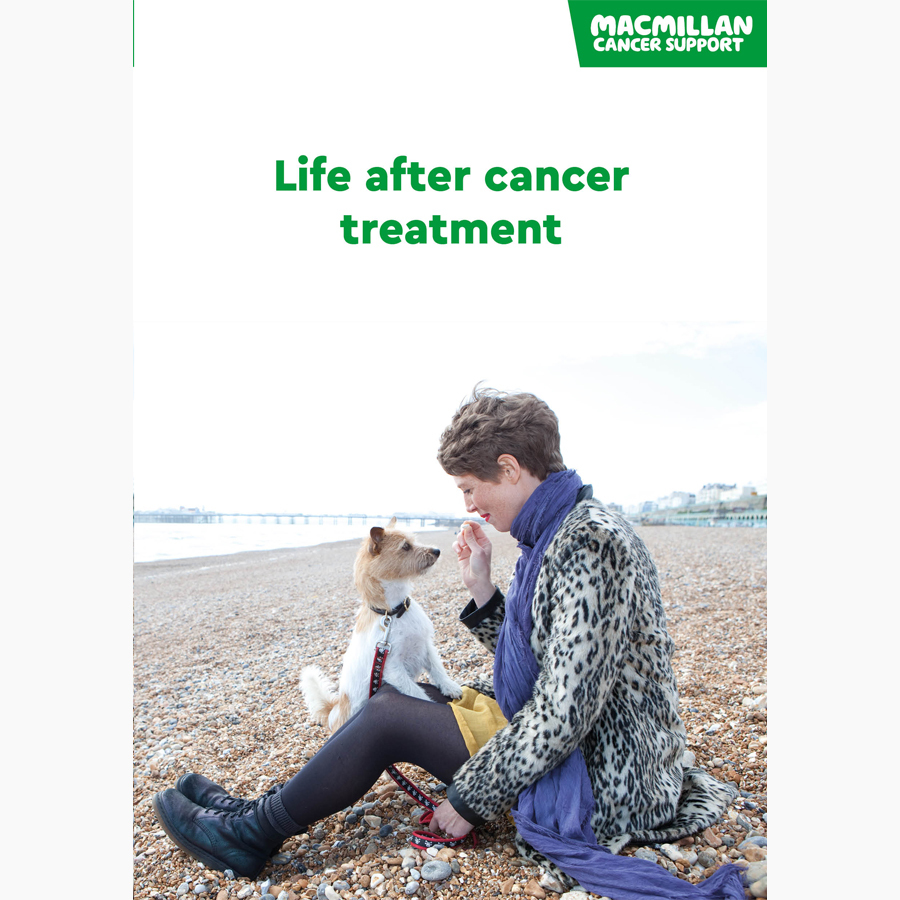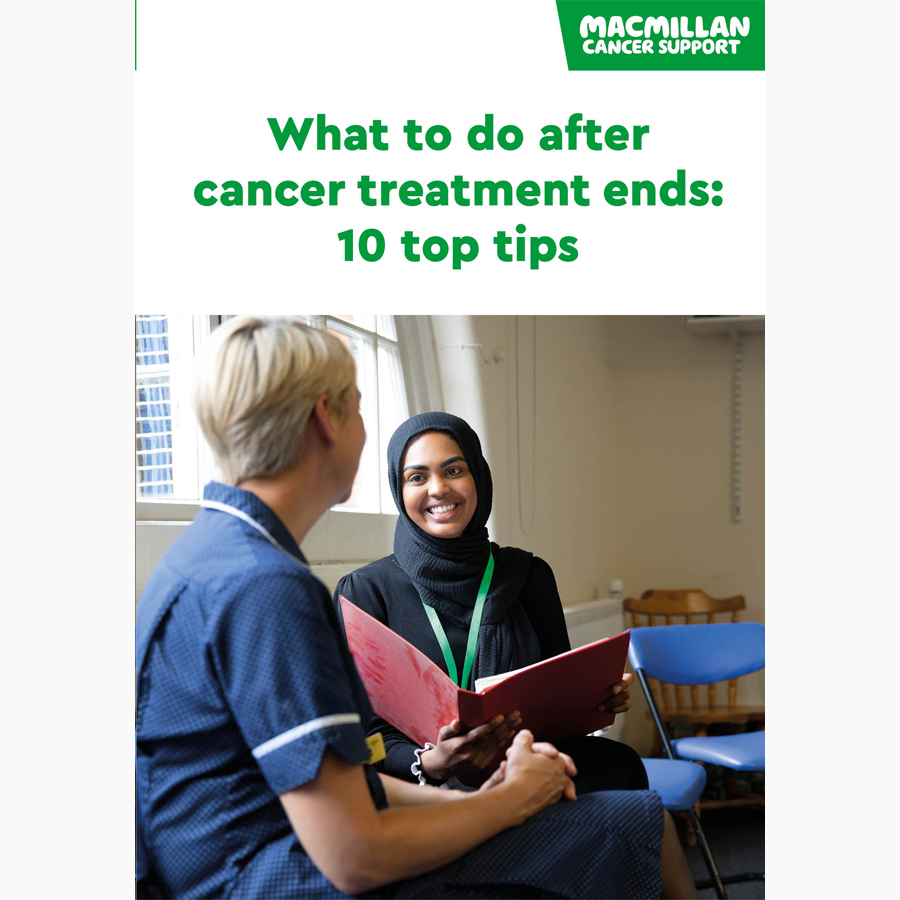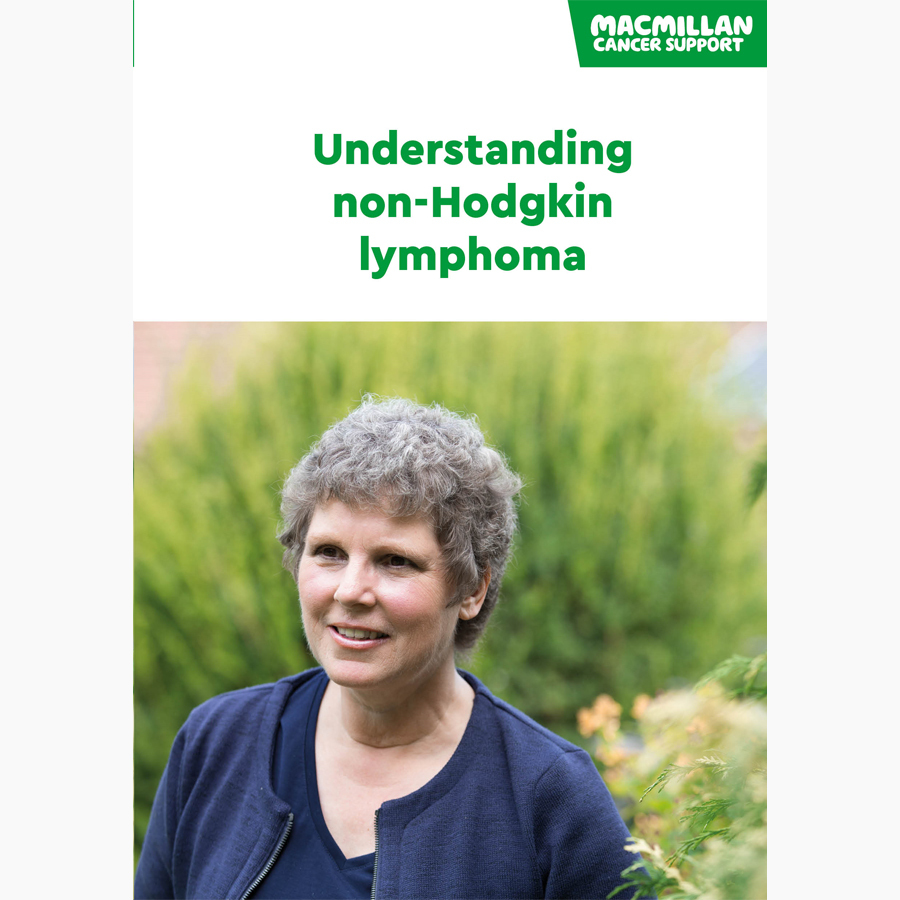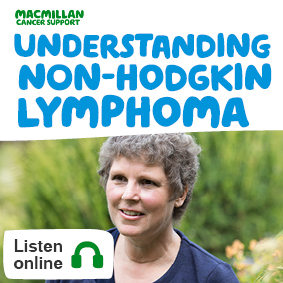Splenic marginal zone lymphoma (SMZL)
Choose a type
On this page
-
What is splenic marginal zone lymphoma?
-
Symptoms of splenic marginal zone lymphoma
-
Causes and risk factors of splenic marginal zone lymphoma
-
Diagnosis of splenic marginal zone lymphoma
-
The stages and grades of splenic marginal zone lymphoma
-
Treatment for splenic marginal zone lymphoma
-
After splenic marginal zone lymphoma treatment
-
Supporting someone with splenic marginal zone lymphoma
-
Access our lymphoma information in other formats
-
About our information
-
How we can help
What is splenic marginal zone lymphoma?
Splenic marginal zone lymphoma (SMZL) is a rare type of non-Hodgkin lymphoma (NHL).
It belongs to a group of non-Hodgkin lymphomas called marginal zone lymphomas (MZL). There are 3 types:
- splenic marginal zone lymphoma (SMZL)
- extranodal MZL known as mucosa-associated lymphoid tissue (MALT) lymphoma
- nodal marginal zone lymphoma (NMZL).
Your doctor may talk to you about the other marginal zone lymphomas before it is clear which type of MZL you have.
SMZL develops when B-cells become abnormal (cancerous). B-cells are white blood cells that normally help fight infection. They are sometimes called B-lymphocytes.
The abnormal B-cells (lymphoma cells) usually build up in the spleen, bone marrow and blood.
Related pages
For healthcare professionals
If you are a healthcare professional, use our guide to find the right information and support for your patients affected by lymphoma. This explains the support available from Macmillan and from other trusted organisations.
Symptoms of splenic marginal zone lymphoma
Many people will have no symptoms when SMZL is first diagnosed. It is sometimes discovered during an examination of your tummy (abdomen). It can also be discovered when blood tests are done for some other reason.
The spleen may become bigger if lymphoma cells build up there. This is called splenomegaly. It can cause discomfort or pain in the upper part of the tummy.
Some people with SMZL will have a low number of blood cells in their blood. This is usually because an enlarged spleen may remove too many blood cells. It can also happen if lymphoma cells build up in the bone marrow. These cells take up space, which makes it difficult for the bone marrow to make enough normal blood cells.
If you have too few blood cells, you may:
- feel tired
- become breathless when moving around
- bruise or bleed easily
- be more at risk of infection.
Sometimes the lymphoma cells make an abnormal protein called a globulin or a paraprotein. This is found in the bloodstream. This protein can make the blood thicker and more slow-moving than normal. This can cause:
- headaches
- confusion
- nosebleeds
- blurred vision.
Related pages
B symptoms
Some people also have symptoms that doctors call B symptoms. These can include:
- drenching night sweats which require a change of nightwear and bed covers
- high temperatures (fevers) with no obvious cause
- unexplained weight loss.
Knowing if you have any B symptoms will help your doctor to stage the lymphoma and plan your treatment.
Causes and risk factors of splenic marginal zone lymphoma
The causes of splenic marginal zone lymphoma (SMZL) are mostly unknown. It is sometimes linked to long-term infection with the hepatitis C virus (HCV). But it is important to remember that most people with HCV will not develop lymphoma.
SMZL can affect people of all ages, but is most common in people over 70.
Like other cancers, SMZL is not infectious. It cannot be passed on to other people.
We have more information about causes and risk factors of lymphoma.
Diagnosis of splenic marginal zone lymphoma
SMZL can be diagnosed through a combination of:
Rarely, SMZL is diagnosed after an operation to remove the spleen.
Other tests may be done to check for signs of infection with hepatitis C virus.
You can read more about further tests you may have in our information about non-Hodgkin lymphoma.
Waiting for test results can be difficult. You may find it helpful to talk to your family, friends or specialist nurse.
Related pages
Related video
The stages and grades of splenic marginal zone lymphoma
Your test results will help your doctors find out how many areas of your body are affected by lymphoma and where these areas are. This is called staging.
Lymphomas are also grouped as either low-grade or high-grade. Low-grade lymphomas are usually slow growing. High-grade lymphomas usually grow more quickly. Splenic marginal zone lymphoma (SMZL) is a low-grade lymphoma and normally develops slowly. Sometimes it can change (transform) to a high-grade lymphoma.
Knowing the stage and grade of the lymphoma helps your doctor plan the right treatment for you.
We have more information about the stages and grades of non-Hodgkin lymphoma.
Treatment for splenic marginal zone lymphoma
A team of specialists will meet to discuss the best possible treatment for you. They are called a multidisciplinary team (MDT).
Your doctor, cancer specialist or nurse will explain the different treatments and their side effects to you. They will also talk to you about things to consider when making treatment decisions.
Treatment for splenic marginal zone lymphoma (SMZL) depends on the stage of the lymphoma and whether you have symptoms that are causing problems.
SMZL usually develops slowly. Some people may not need treatment for months, or years. During this time, they will have regular check-ups to monitor the lymphoma. This is called watch and wait.
If treatment is needed, the aim is to control the lymphoma for as long as possible. This is called remission.
The most common treatments for SMZL are:
-
Immunotherapy and chemotherapy
SMZL is often treated with the immunotherapy drug rituximab in combination with chemotherapy. This is called chemoimmunotherapy. Sometimes rituximab is used on its own. Chemoimmunotherapy can often get the lymphoma into remission. Commonly used combinations of chemoimmunotherapy include:
- R-CVP
- R-CHOP
- R-chlorambucil – rituximab and chlorambucil
- R-bendamustine – rituximab and bendamustine.
-
Steroids
Steroids are drugs that are often given with chemotherapy to treat lymphomas. They help make chemotherapy more effective.
-
Surgery to remove the spleen (splenectomy)
Surgery to remove the spleen may sometimes be useful in this type of lymphoma. If the spleen is not too large, this operation can be done using laparoscopic surgery. This is sometimes called keyhole surgery.
-
Radiotherapy
Radiotherapy uses high-energy rays to destroy cancer cells, while doing as little harm as possible to normal cells. You may have low doses of radiotherapy to the spleen. This treatment may be used if the enlarged spleen is causing symptoms, but you are not well enough to have surgery or chemotherapy.
You may have some treatments as part of a clinical trial.
If SMZL comes back after treatment it is called a recurrence or relapse. When this happens, you can usually have more treatment to help control it again. We have more information about treating lymphoma that has come back.
After splenic marginal zone lymphoma treatment
People often have many different feelings when they finish lymphoma treatment. You may feel relieved that treatment has finished, but worried about what will happen in the future.
You will have appointments with your lymphoma doctor or nurse less often than before. But at the same time, you may have new challenges to cope with and things to think about.
We have information below about some of the things people ask about after lymphoma treatment. But you may have other questions or need information about something else. If there is something you want to talk about at any point after treatment, you can:
- call the Macmillan Support Line free on 0808 808 00 00
- chat to our specialists online
- visit our Online Community to talk to people who have been affected by lymphoma, share your experience, and ask an expert your questions.
Related pages
Lymphoma follow-up
Related pages
Side effects of lymphoma treatment
You may have some ongoing side effects as you recover from lymphoma treatment. You can use our impacts of cancer A-Z to search for information about managing different symptoms and side effects. Or find out more about side effects of treatment for Hodgkin lymphoma or treatment for non-Hodgkin lymphoma.
-
Tiredness and fatigue
Tiredness (fatigue) often affects people with cancer. It can be caused by lymphoma or be a side effect of lymphoma treatment. RESTORE is an online resource that aims to help people living with cancer related fatigue.
-
Sexual well-being
Lymphoma and its treatment can sometimes affect your sex life. There are ways to improve your sexual well-being and to manage any problems.
-
Fertility
Treatment for lymphoma may affect your fertility. If you are worried about your fertility it is important to talk with your doctor before you start treatment. We have more information about:
Sometimes side effects may continue or develop months or years after treatment. These are called late effects. We have more information about long-term and late effects of treatment for lymphoma.
Well-being and recovery
It can take time to recover after lymphoma treatment. Some days you may feel better than others.
It is important to know where to get support or information if you need it. People often need support even some time after lymphoma treatment. But sometimes it is difficult to know who to ask for help. To find support:
- ask your GP or someone from your cancer team for advice about support in your area
- search cancercaremap.org to find cancer support services near you
- call us free on 0808 808 0000 or talk to us online - our cancer information and support specialists can offer guidance and help you find what you need.
Our course Help to Overcome Problems Effectively (HOPE) helps people during and after cancer treatment. It is a free, interactive, group based, self management support course. It runs for 6 weeks, with each weekly session lasting 2.5 hours. To find out more about HOPE courses in your area, email ServiceOpsSupport@macmillan.org.uk
A healthy lifestyle can help speed up your recovery. Even small lifestyle changes may improve your well-being and long-term health.
Related pages
Related video
Other useful information
Supporting someone with splenic marginal zone lymphoma
Talk to someone about non-Hodgkin lymphoma
Everyone has their own way of dealing with illness and the different emotions they experience. You may find it helpful to talk things over with family and friends or your doctor or nurse.
Macmillan is also here to support you. If you would like to talk, you can:
- Call the Macmillan Support Line on 0808 808 00 00.
- Chat to our specialists online.
- Visit our non-Hodgkin lymphoma forum to talk with people who have been affected by non-Hodgkin lymphoma (NHL), share your experience, and ask an expert your questions.
More information and advice
We know cancer can affect you physically, emotionally and financially. We have information and advice about different ways cancer might impact you, such as help with:
Other organisations who offer information and support
The organisations below also offer information and support:
-
Blood Cancer UK
Blood Cancer UK offers support and information to people affected by blood cancers, including lymphoma.
-
Lymphoma Action
Lymphoma Action provides high quality information and support for people affected by lymphoma. It provides helpline services and a range of peer support including online support meetings, educational events and webinars. Its website includes TrialsLink, a database of lymphoma clinical trials.
Supporting someone with lymphoma
When someone you know is diagnosed with lymphoma, it can be difficult to know how to support them. You may want information to help you understand what they are going through. Or you may be worried about what to say.
We have information to help with the practical, emotional and financial impacts of supporting someone. You can also talk to us by:
- calling the Macmillan Support Line
- using chat online
- visiting our family and friends forum to talk with people who are supporting someone with cancer, share your experience, and ask an expert your questions.
Related video
Access our lymphoma information in other formats
We are working to make our website as accessible as possible. We want everyone to be able to use it to find the information they need. We have tips about using settings on your computer or device to help you use our website in our accessibility statement.
We also provide information in a range of languages and formats. If you cannot find the information you are looking for in the format or language you need, email us at cancerinformationteam@macmillan.org.uk
Order our non-Hodgkin lymphoma booklet
Download our lymphoma booklet and ebooks
Our Understanding non-Hodgkin lymphoma booklet is available as a pdf to download or view online and in ePub or Mobi formats to download.
Related video
Listen to our lymphoma audiobook
You can listen to our Understanding non-Hodgkin lymphoma audiobook. You can also search our full range of audiobooks.
Related video
Find non-Hodgkin lymphoma information in your language
We have a range of translated cancer information. This includes information about different cancer types, being diagnosed, cancer treatment, and side effects. We have some lymphoma information in the following languages. You can also search our most up to date list of web pages we have translated on request.
- Bulgarian - Mantle cell lymphoma / Мантелноклетъчен лимфом [PDF]
- German - Follicular lymphoma / Follikuläres Lymphom (FL) [PDF]
- Polish - Diffuse large B-cell lymphoma (DLBCL) / Chłoniak rozlany z dużych komórek B [PDF]
- Polish - Lymphoma / Chłoniak [PDF]
- Slovak - Anaplastic large cell lymphoma (ALCL) / Anaplastický veľkobunkový lymfóm [PDF]
- Slovak - Follicular lymphoma / Folikulový lymfóm [PDF]
- Tamil - Follicular lymphoma [PDF]
If you would like any of our lymphoma information translated into your language, please email cancerinformationteam@macmillan.org.uk
Watch British sign language videos
You can watch our BSL videos about cancer on YouTube.
Find our easy read booklets
Our easy read booklets use simple words and pictures to tell you about cancer. They can be useful if you want information that is easier to understand.
Looking for large print, Braille or another format?
If you would like our information in a different format such as large print or Braille, email us at cancerinformationteam@macmillan.org.uk or call us free on 0808 808 00 00.
About our information
-
References
Below is a sample of the sources used in our splenic marginal zone lymphoma (SMZL) information below. If you would like more information about the sources we use, please contact us at cancerinformationteam@macmillan.org.uk
National Institute of Health and Care Excellence (NICE). Blood and bone marrow cancers. NICE Pathways. Last accessed 3 December 2020.
Zucca. E, Arcani. L, Buske. C on behalf of the ESMO Guidelines Working Group. Marginal zone lymphomas: ESMO Clinical Practice Guidelines for diagnosis, treatment and follow-up. Published 6th January 2020. Available at: Marginal zone lymphomas: ESMO Clinical Practice Guidelines for diagnosis, treatment and follow-up - Annals of Oncology
-
Reviewers
This information has been written, revised and edited by Macmillan Cancer Support’s Cancer Information Development team. It has been reviewed by expert medical and health professionals and people living with cancer. It has been approved by Senior Medical Editor, Dr Anne Parker, Consultant Haematologist.
Our cancer information has been awarded the PIF TICK. Created by the Patient Information Forum, this quality mark shows we meet PIF’s 10 criteria for trustworthy health information.
Date reviewed
This content is currently being reviewed. New information will be coming soon.

Our cancer information meets the PIF TICK quality mark.
This means it is easy to use, up-to-date and based on the latest evidence. Learn more about how we produce our information.
How we can help










